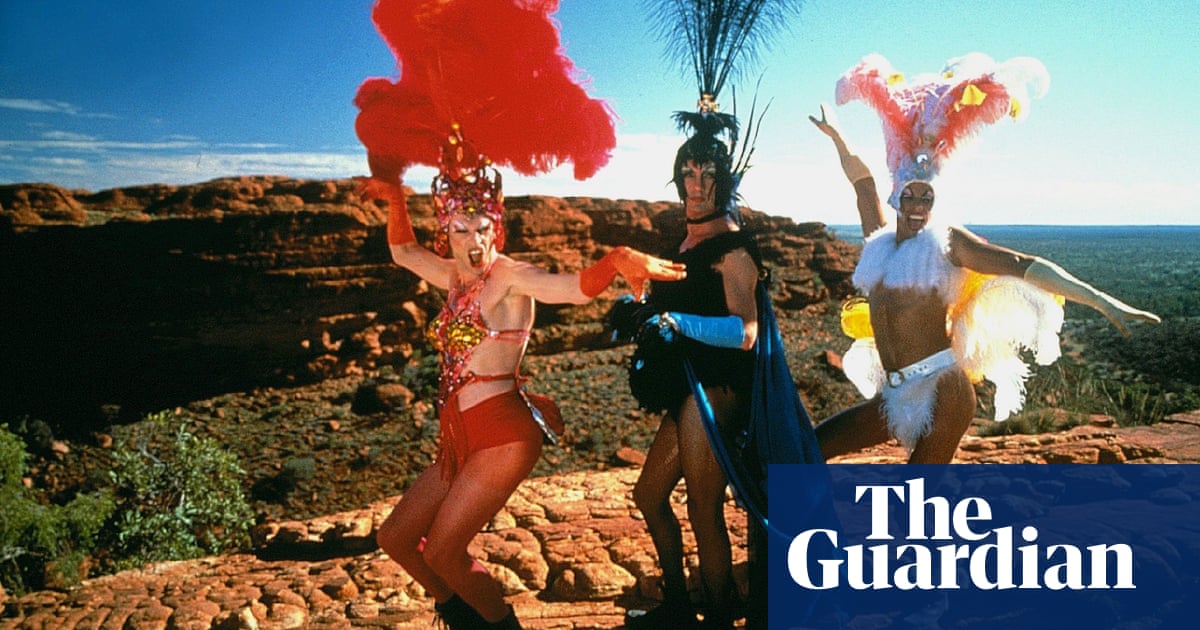
How Andor Revolutionised The Star Wars Galaxy
WARNING: Contains spoilers for Andor: Season 1
“Faster, more intense!” That was always George Lucas’ direction to his actors while shooting Star Wars. When devising the narrative tone of his galaxy far, far away, he wanted pulp. He wanted adventure. He wanted energy. In his head, he saw a combination of propulsive TV serials, Flash Gordon space operatics, and epic samurai mythology, all told with the technical mastery of 2001: A Space Odyssey. Since no-one else quite got exactly what Lucas was going for with Star Wars until it arrived, it all came down to those three words to get the feeling across: Faster. More intense. That ethos has informed Star Wars stories ever since – whether chronicling the fall of the Republic, the raging of the Clone Wars, the battle for the Death Star plans, the reawakening of the Force, or the bond between a bounty hunter and his tiny green surrogate-son, those ripping-yarn roots remained.
Until Andor. Tony Gilroy’s Rogue One prequel – detailing the five years running up to the heroic sacrifice of Diego Luna’s Cassian Andor in the battle of Scarif, moments before Episode IV: A New Hope begins – dispenses with that pulp ethos almost entirely. Fittingly, for a show about the rumblings of a galactic uprising, the first 12-episode season of the show has felt like its own Star Wars revolution – not so much finding a different angle on the universe we know and love, but fundamentally unpicking and reassembling the idea of what Star Wars can be. With its patient pacing, its tense entanglements of political subterfuge, spy-games, and double-lives, and its focus on the true horror of life under the Empire, Gilroy’s approach with Andor has been the opposite of Lucas’, but no less effective: slower, more intriguing.

Right from the beginning, it was clear Andor was going to be a different kind of Star Wars story – not just because it began with our ‘hero’ committing a double-murder in a rain-lashed scuffle. No, the real giveaway was a pot of noodles. In the opening instalment of the series, audiences were privy to something they’d never seen before: a galactic lunch break, as a trio of staff members grumbled about overtime and their snivelling boss, Kyle Soller’s Syril Karn. The noodles might have been blue – but in every other sense, the scene felt almost alien in its earthly mundanity. George Lucas’ Star Wars never had time for lunch breaks (well, perhaps the odd trip to Dex’s Diner on Coruscant) or gripes about pay. Those noodles were a sign that Andor would commit to showing the everyday reality of the galaxy, both for our rising rebels and the Empire. Not that Episode 1’s noodle-eater was even technically aligned to the Empire – he worked for the Pre-Mor Authority, subcontractors to the Empire, evil outsourced to a private security firm. Suddenly, Randall’s rant about the Death Star contractors in Clerks feels that bit more accurate.
Under Tony Gilroy and his team's razor-sharp writing, Andor proved incisive in its exploration of tyranny's many tendrils.
All of the small ways in which normality permeated the Star Wars galaxy in Andor – those noodles, that late-night booty call, the beachfront stop-and-search, Mon Mothma’s horrible husband and Karn’s mortifying mother – served to make the big moments hit even harder. While Star Wars has always excelled at delivering heroes and villains in the archetypal adventure-story mould – the boy hero, the wise old man, the hot-shot pilot, the cloak-swishing baddie – Andor stripped those trappings away. Instead, it gave us ordinary people facing perilous decisions and wrestling with moral dilemmas, their extraordinary circumstances grounded in the most ordinary of moments. As a result, the cost of every life – of Nemik, of Kino Loy, of Maarva – felt wrenching. And from that wealth of pain, any victories – a fraught but successful escape through The Eye, the overpowering of the prison guards, Luthen evading the Arrestor Cruiser – felt all the sweeter too.
Part of Andor’s brilliance is that it achieved all of this on both sides of the pide. Whether we wanted to or not, we felt for Syril Karn as he sulked over his breakfast cereal, unceremoniously relieved of his duties. We felt a thrill when Denise Gough's Dedra Meero started to connect the dots and win the respect of her superior officers. But we also felt the loss and devastation of the Aldhani people, the hatred of colonisers instilled in Cassian (or, ‘Kassa’) from his childhood, the terrifying weight carried by Mon Mothma in her secret mission, the total dehumanisation of the Narkina 5 prisoners, the growing chokehold on the people of Ferrix. If Andor explored the true monolithic scope of the Empire more than any other Star Wars entry, it also pushed beyond that exterior – depicting so clearly that evil relies on the actions of inpiduals to succeed. The flipside? The actions of inpiduals can also thwart it.

This level of forensic detail, depicting the slow death-squeeze of life under an oppressive regime, saw Andor unspool so many facets of how fascism operates. Under Gilroy and his team’s razor-sharp writing, the show proved incisive in its exploration of tyranny’s many tendrils – the prison-industrial complex and its direct connections to colonialism; legal corruption and police profiling; the financial demands of fuelling a rebellion; and the myriad personal costs of fighting back. So much of this was new territory for Star Wars – and yet, in keeping with George Lucas’ aims. Though simplified and dressed up in genre trappings, Lucas was always clear on the Vietnam war’s influence on the Original Trilogy (spoiler: the Americans weren’t the Rebels). His Prequel Trilogy hinged on the slow dismantling of democracy as the Galactic Republic crumbles. From those origins, Star Wars has remained inherently political – the Sequel Trilogy showed its heroes caught in a loop, fighting a new generation of the same old evil, reignited when given just a whiff of oxygen. Andor took those ideas to a granular level.
That tension of Andor – being both groundbreaking, and yet also Star Wars to its very core – reverberated throughout the entire series. While the show marked a move away from Lucas’ pulpy serial inspirations in its narrative and dialogue, the influence of genre traditions remained – rather than drawing from Westerns and samurai cinema, it instead gave us a heist thriller and a prison break arc. It still delivered adorable droids (B2EMO rules), TIE Fighter battles, and a smattering of creatures (we request more Vetch in Season 2, please). And, most importantly, it was true to Star Wars in that it was all about making you feel – just, rather than the thrill of adventure and the hero’s journey, it wanted you to feel the anger, the injustice, the terror, the power, and the glimmer of hope that our rising Rebels do.

What next, then? Well, a second season, obviously – a time-hopping four-year tale set to take Cassian and co right up to the beginning of Rogue One. But for the wider Star Wars universe, here’s hoping Lucasfilm and the creative team take the right lessons from Andor’s success: that a beautifully-crafted monologue can be as spectacular as any action setpiece; that getting out of the Volume once in a while makes a huge difference; that more mature stories can happily coexist with the all-ages fare. Part of the reason Andor succeeds is because it’s able to deliver the things that mainline Star Wars entries can’t – and perhaps shouldn’t. While pulp-free Star Wars is thrilling in the context of a Tony Gilroy spy drama, it’s still a key ingredient in the cinematic outings and the Mando-verse series. But what Andor does prove is that carving out a space for something different can reap incredible rewards – broadening the scope of what Star Wars can be, without losing what makes it special. And, as Andor shows, exquisite writing, superb direction, and outstanding performances all help too. Ultimately, in the grand banquet of everything that is Star Wars, Andor brought a whole new flavour to the table – and it tastes like delicious blue noodles. Long live the revolution.
Andor: Season 1 is streaming now on Disney+



















































